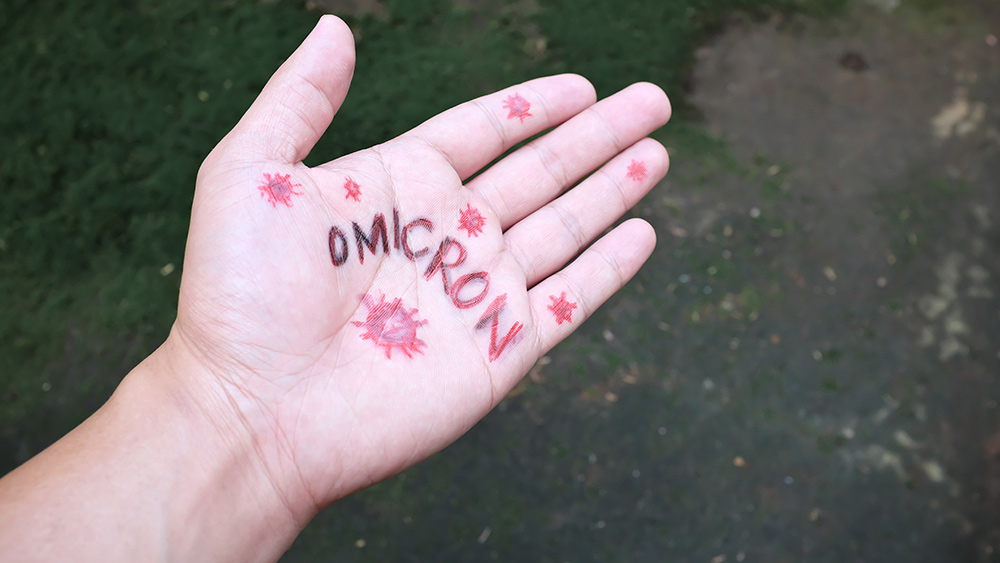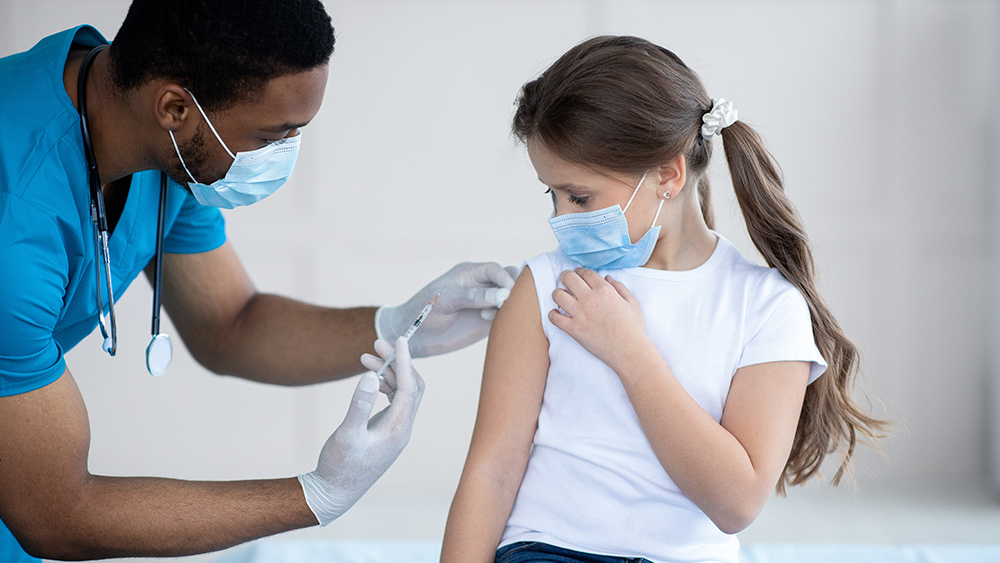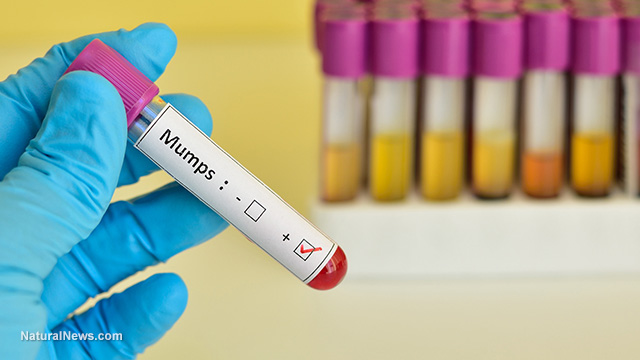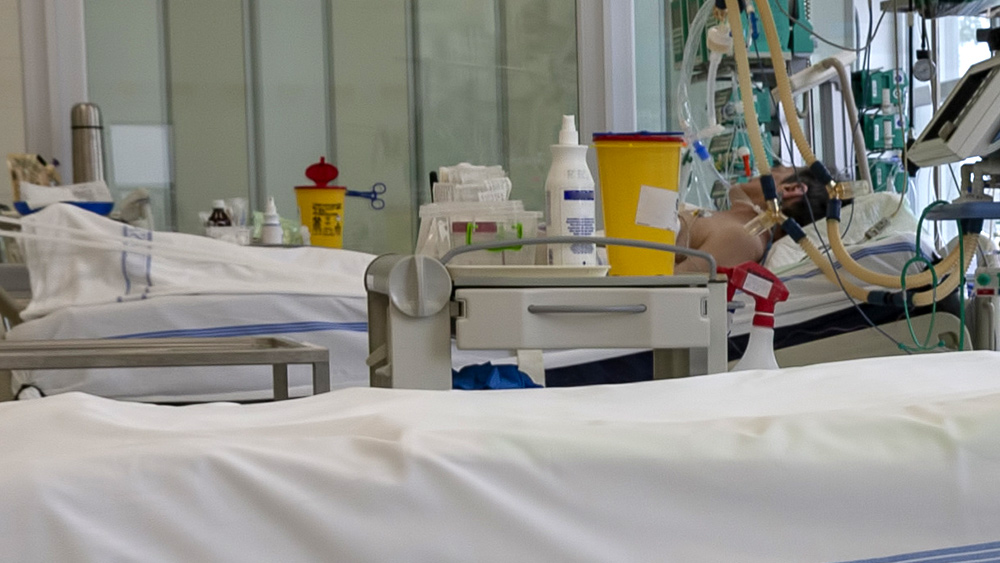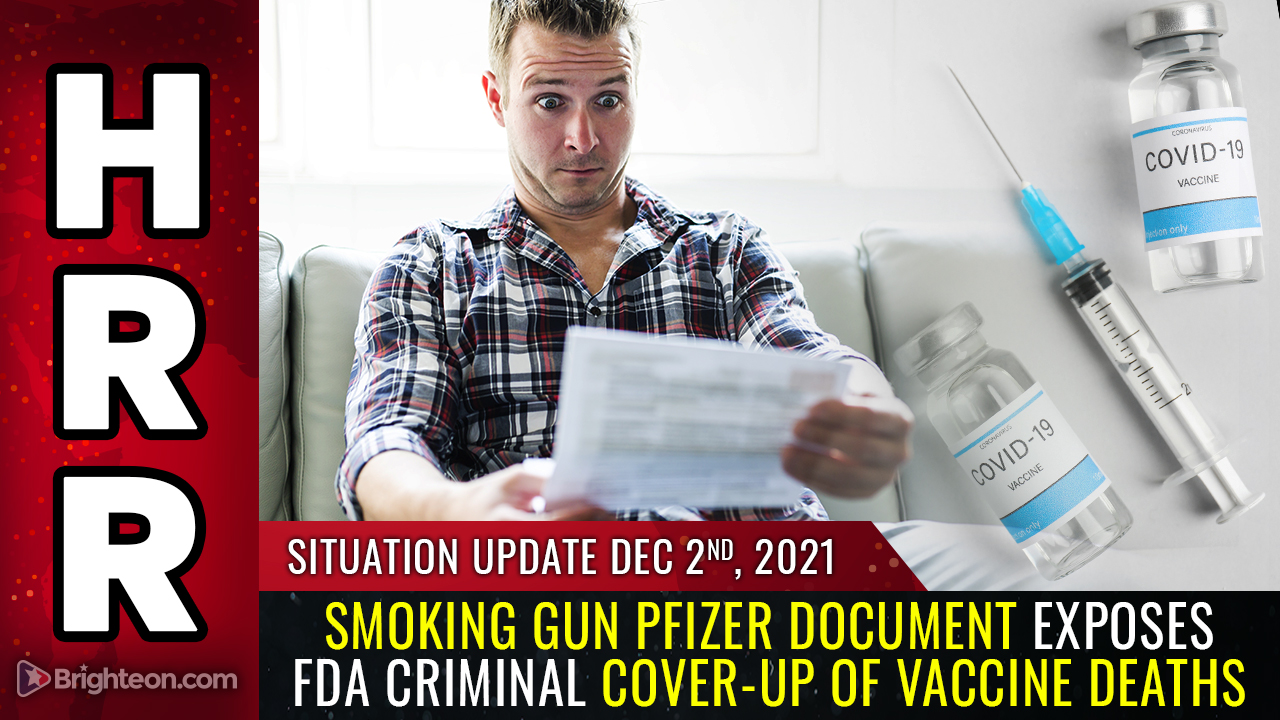VACCINE FAIL: CDC admits more than 9,000 Americans contracted the coronavirus even after taking covid vaccines
05/07/2021 / By Ramon Tomey

The Centers for Disease Control and Prevention (CDC) revealed that more than 9,000 Americans contracted COVID-19 after getting vaccinated. It registered a total of 9,245 so-called breakthrough COVID-19 cases as of April 26. However, this official number from the CDC might be larger due to actual figures being under-reported.
A breakthrough COVID-19 case happens when a person becomes infected with the Wuhan coronavirus two or more weeks after they get the final vaccine dose. Still, the CDC reiterates that vaccines are effective and the breakthrough cases only represent a small percentage of the immunized population.
The federal agency said that such vaccine breakthrough cases are “expected.” It elaborated: “COVID-19 vaccines are effective and are critical [tools] to bring the pandemic under control. However, no vaccines are 100 percent effective at preventing illness. There will be a small percentage of people who are fully vaccinated who still get sick, are hospitalized or die from COVID-19.”
About nine percent of the 9,245 breakthrough cases – amounting to 835 patients – required hospitalization. Of the 835 hospitalized breakthrough patients, 241 of them were reportedly asymptomatic or having an illness unrelated to COVID-19. Meanwhile, the CDC recorded 132 deaths from the more than 9,000 breakthrough infections.
The CDC collated the breakthrough cases from data submitted by 46 U.S. states and territories. Four areas did not turn in figures to the public health agency. Actual figures are likely larger than the official CDC tally as its surveillance system depends on voluntary reporting from state health departments. Lack of testing can cause other cases of breakthrough COVID-19 infection to slip through.
The public health agency continued: “These surveillance data help identify patterns and look for signals among vaccine breakthrough cases. As CDC and state health departments shift to focus only on investigating vaccine breakthrough cases that result in hospitalization and death, those will be regularly updated.”
People who get certain vaccines are more prone to contract certain Wuhan coronavirus variants
As of writing, three vaccines against the Wuhan coronavirus have been approved for emergency use in the U.S. The Pfizer and Moderna vaccines received the green light in December 2020 while the Johnson & Johnson vaccine got the thumbs-up for emergency use in February.
The messenger RNA (mRNA) vaccines from Pfizer and Moderna require two doses. Clinical trials showed the Pfizer vaccine having a 95 percent effectivity rate against infections, while the Moderna vaccine reported 94 percent. J&J’s adenoviral vector vaccine was tested when different Wuhan coronavirus variants were already circulating. The single-dose shot reported a 66.9 percent effectivity rate in preventing infections.
The state of Israel predominantly used the Pfizer mRNA vaccine for its immunization drive, alongside a small supply of Moderna vaccine doses. However, a study by Israeli researchers found that those inoculated with the two-dose Pfizer vaccine could still contract two particular Wuhan coronavirus strains.
Researchers from Tel Aviv University and Israeli health care provider Clalit Health Services looked at COVID-19 test results from 800 Israelis. Half of these results came from vaccinated Israelis while the other half were from unvaccinated citizens, the Times of Israel reported. Through the study, the researchers wanted to see if vaccinated people are more likely to be infected with coronavirus variants compared to the unvaccinated people.
The researchers found that the people who completed the two-dose Pfizer vaccine regimen are eight times more likely to contract the South African B1351 variant. They also discovered that the B117 strain from the U.K. is more prevalent in people who got at least one Pfizer vaccine dose. The so-called British variant had the same prevalence rate as its South African counterpart in those who completed two doses.
Lead researcher Adi Stern remarked: “We found a disproportionately higher rate of the South African variant among people vaccinated with a second dose, compared to the unvaccinated group. This means that the South African variant is able, to some extent, to break through the vaccine’s protection.”
Despite the higher prevalence of the B1351 strain in the samples they observed, the variant only comprises one percent of cases in the entire country. A major wave of infections in Israel early this year was attributed to the B117 variant.
However, Stern surmised that the British strain may have kept the spread of the South African variant at bay. “It is possible that the extensive spread of the British variant is blocking the spread of the South African variant. Because it spread so effectively, it basically didn’t allow the South African [strain] to spread,” Stern said.
Visit VaccineDamage.news to read more articles about breakthrough Wuhan coronavirus infections.
Sources include:
Tagged Under: breakthrough infection, CDC, Centers for Disease Control and Prevention, coronavirus, coronavirus infections, coronavirus vaccine, covid-19, exploiting pandemic, mass immunization, outbreak, pandemic, vaccine immunity, vaccine wars, vaccines, Wuhan coronavirus
RECENT NEWS & ARTICLES
COPYRIGHT © 2017 CDC NEWS







